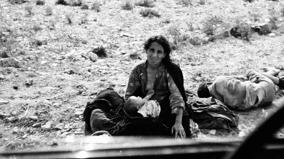New release
Coming
None
On Prescription Only
1960
29 min
Leaving soon
This short documentary from 1960 explores the world of modern medication; miracle drugs that cure diseases which not long ago were fatal. You'll travel into the world of pills and potions for an intimate survey of how modern medicine is created, and the beneficial effects they're having.

Details
This short documentary from 1960 explores the world of modern medication; miracle drugs that cure diseases which not long ago were fatal. You'll travel into the world of pills and potions for an intimate survey of how modern medicine is created, and the beneficial effects they're having.
-
directorJulian Biggs
-
producerDavid Bairstow
-
scriptSally Lindsay
-
photographyTom Bird

















